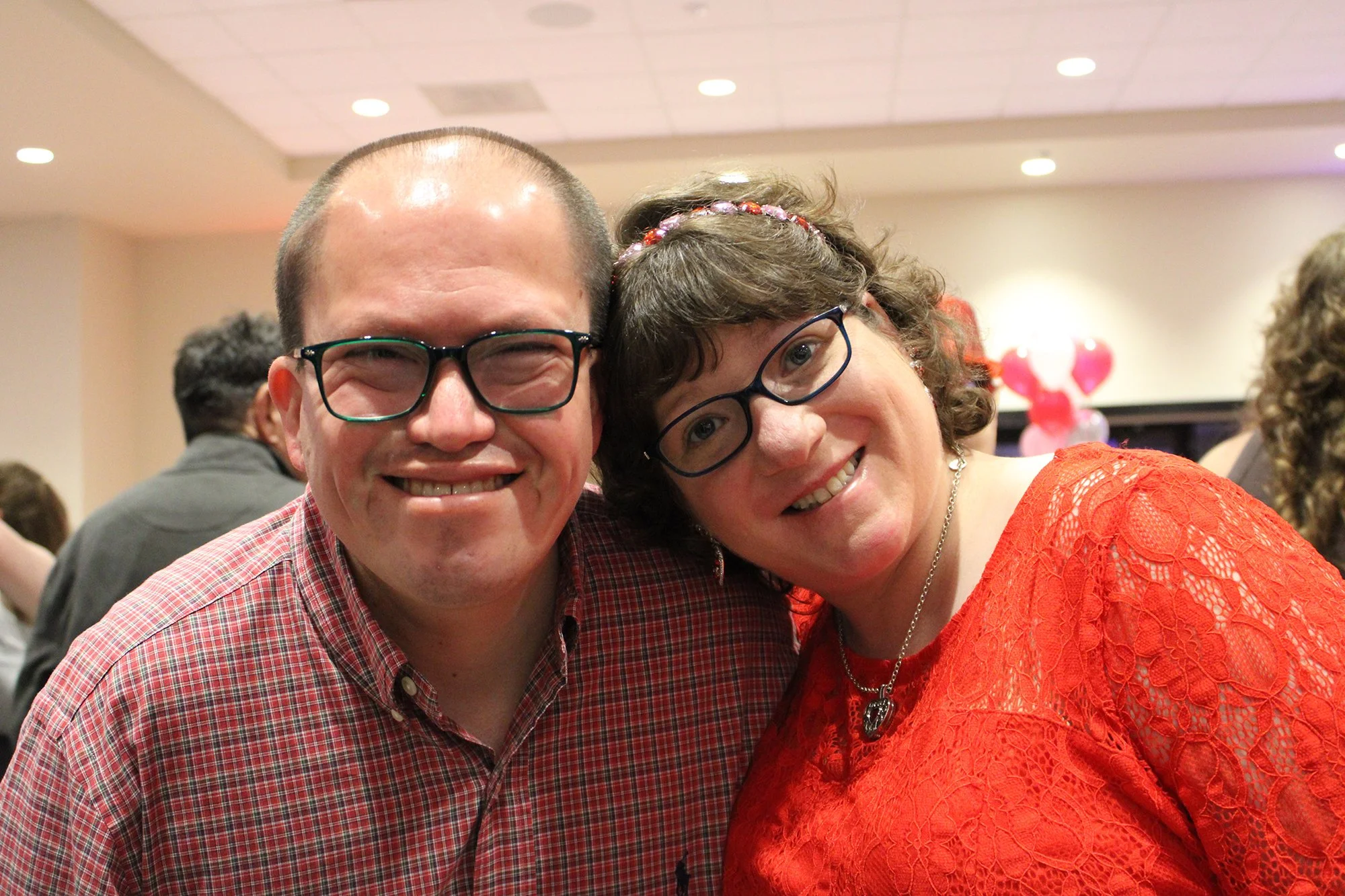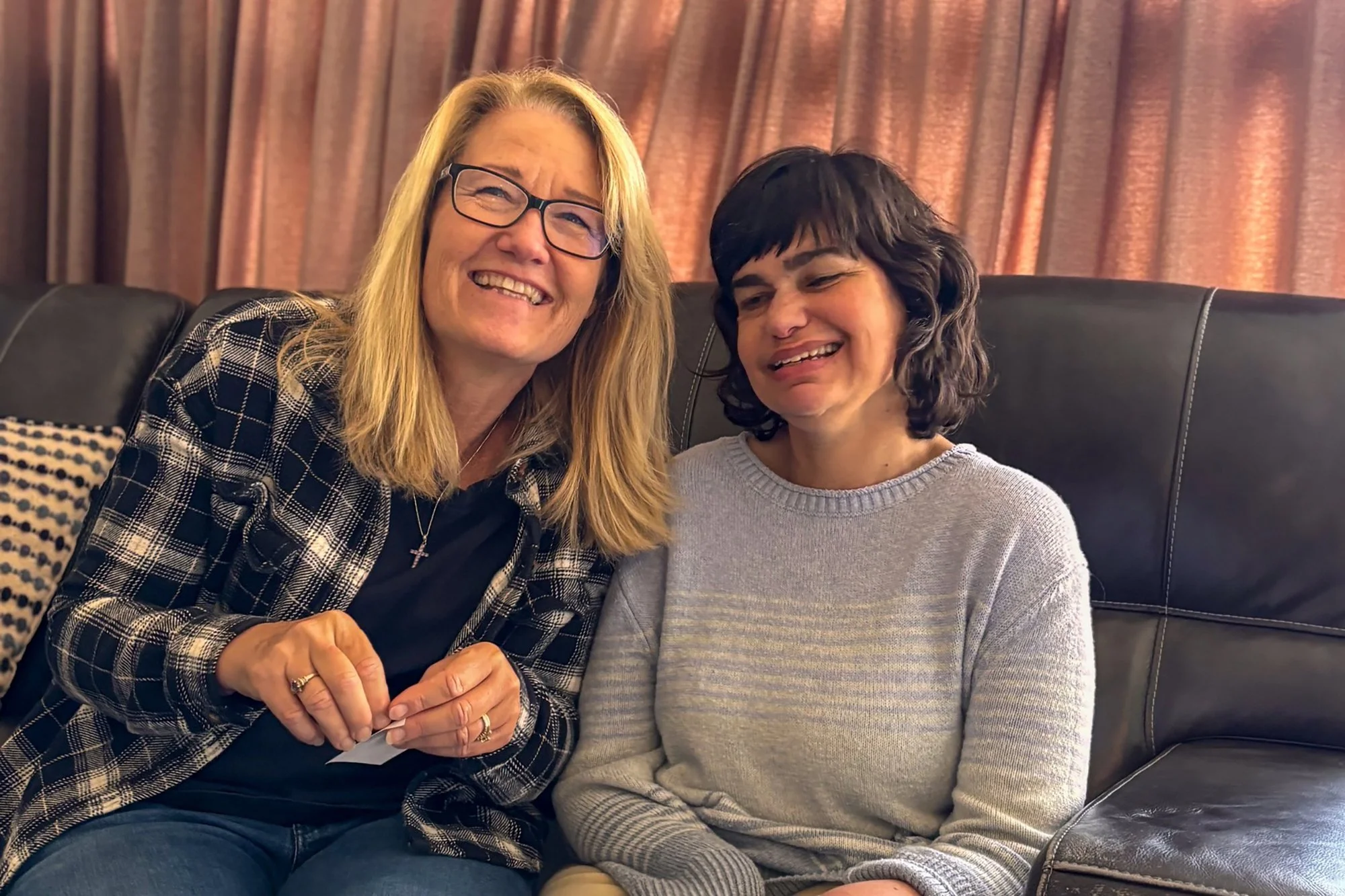Myths & Misconceptions
California is home to over 625,000 people with intellectual and developmental disabilities (I/DD), with many millions more across the United States and the rest of the world. Despite these large numbers, there are many myths and misconceptions that people have about those with I/DD.
In this post, I will share some of these myths and misconceptions, along with the truths that debunk them. My hope is that you learn something, and the next time you encounter one of these inaccurate misbeliefs, you will speak up and share the truth.
MYTH #1:
People with I/DD cannot be in a romantic relationship
Adults with I/DD have the same need and desire for connection as everyone else, but they are often more sheltered. At Noah Homes, residents typically have very “innocent” relationships with someone else who lives in the community or with someone they met at their day program/job. These relationships are comprised of dates (such as going to the movies or having a romantic dinner at home), holding hands, phone calls, and doing activities together, among other things. Some of our residents have been in relationships for years, and some partnerships only last a few months, just like people without I/DD. These couples will often talk and dream about their futures together. These relationships are comprised of two people supporting and loving one another, just like those in "neurotypical" relationships.
MYTH #2
People with I/DD do not like the same activities or have the same interests as those without I/DD
People with I/DD are people first and have individual preferences just like everyone else. At Noah Homes, our residents have a variety of interests, hobbies, and activities that they like to participate in.
Many of our residents are into sports and participate in basketball, softball, bowling, swimming, and more throughout the year. They have their favorite football, soccer, baseball, and basketball teams that they cheer for. We have many avid Padres fans who watch the games, keep up with the scores, and attend games whenever they can.
Other residents enjoy reading, watching movies, crocheting, playing video games (Mario Kart tournaments happen occasionally 😉), dancing, and so much more.
With 90 residents at Noah Homes, think of a hobby, and I’m sure one of our residents enjoys that as well.
MYTH #3
People with I/DD are all alike and require the same level of support
As is the case for ALL humans, we are all different and require different levels of care and support. Our residents and others with I/DD are no different.
As described above, people with I/DD have a variety of interests and personalities that make up who they are. They are each unique individuals, and just because they may all be linked because they have I/DD, does not mean that they are the same or need the same level of support.
At Noah Homes, each of our houses are tailored to provide different levels of care. In our Memory Care Homes, the residents may need more help with everyday tasks, as they struggle with the realities of dementia. But in some of our other homes, the residents are much more independent and able to do most things on their own, with staff present to support them when needed.
MYTH #4
People with I/DD are hard to interact with and/or work with
Interacting with people who have I/DD is no different than interacting with other friends, family, coworkers, acquaintances, etc. Just be yourself! You should ask them questions such as, “How was your day?” or “What did you do this weekend?”. Some people with I/DD may not be able to speak verbally, but they have other ways of communicating, and we should learn to understand how they communicate and meet them where they are.
People with I/DD are often easier to work with because they are accustomed to receiving support. They form strong bonds with their caregivers, friends, and family and are not afraid to ask for help when they need it.
They enjoy showing off their abilities, as they’ve often been labeled by what they lack throughout their life. Encouraging positive expressions strengthens connections between you and them.
Ultimately, these individuals with I/DD are special, but not because of their disabilities. They are special because they help us see life differently. They are full of joy and make us laugh. They help us pause and enjoy the little moments. They make us better.
The most important takeaway is to see each individual as a person first. By fostering respect, understanding, and positive interactions, we can create a thriving, inclusive life for all with I/DD. Here at Noah Homes, we are blessed by our residents every single day. Help advocate for those with I/DD and treat them like you would any other person.




